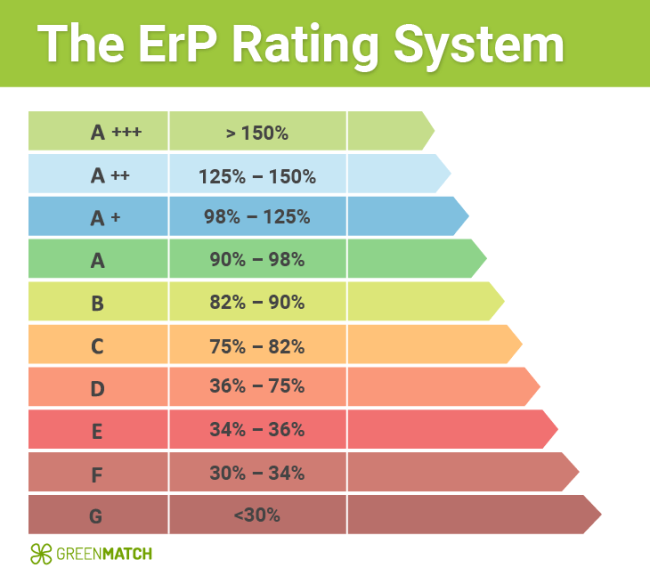The need for energy-efficient appliances, including boilers, is growing in the current era of sustainability and environmental concern. In the UK, having a heating system is essential for a pleasant and comfortable lifestyle. Homeowners must weigh the pros and cons of ordinary vs energy-efficient boilers. The difference in cost between these two solutions is a frequent worry, though.
In the UK, energy-efficient boilers are more expensive than ordinary ones. This article will explore the cost dynamics of these boilers by comparing their initial cost of purchase, installation fees, long-term savings, and government incentives.
What Are Energy-Efficient Boilers?
It’s critical to comprehend what energy-efficient boilers are and how they vary from conventional types before diving into the pricing comparison. Energy-efficient boilers are made to use fuel as efficiently as possible, which lowers energy use and utility costs. By extracting more heat from flue gases before their expulsion, condensing boilers,an example of sophisticated technology, help them do this. Energy-efficient boilers become more economical and ecologically friendly over time as a result of this process, which also reduces waste of energy.
Compared to their energy-efficient equivalents, ordinary boilers are usually less efficient despite still being functional. Their absence of condensing equipment, for example, might lead to higher energy usage and higher carbon emissions.
Purchase Price: Is It Really Worth It?
When deciding between energy-efficient and ordinary boilers, homeowners frequently base their decision on the initial purchase price. Because they are more sophisticated technologically and more efficient than regular boilers, energy-efficient ones are typically more expensive initially. The typical cost of installing a new, energy-efficient boiler in the UK is estimated by the Energy Saving Trust to be between £2,000 and £3,000, depending on the boiler’s size, brand, and installation complexity.
Standard boilers, on the other hand, usually cost between £500 and £2,000 when first purchased. Nonetheless, it’s critical to think about how this initial investment will affect things down the road. Even if the initial cost of a normal boiler might appear cheaper, the savings from decreased energy bills can more than cover for the higher initial cost.
Are There Difference In Terms Of Installation Cost?
Another thing to take into account when comparing energy-efficient boilers to ordinary versions is installation expenses. Because of their sophisticated features, energy-efficient boilers could require more involved installation processes, which could increase installation costs. The expenses may also go up if the installation requires updating or adapting current heating systems to make room for energy-efficient boilers.
Standard boilers, on the other hand, usually have easier installation requirements, which translate into less installation costs. However, in order to prevent any safety concerns or inefficiencies in performance, it is imperative to guarantee that the installation is completed by trained specialists.
The Long-Term Savings?
Although energy-efficient boilers might cost more to purchase and to install, they save a lot of money over time by using less energy and therefore paying less for utilities. When compared to an older, less efficient model, homeowners who upgrade to an A-rated energy-efficient boiler may save up to £315 annually on their heating expenses, according to the Energy Saving Trust.
Additionally, the need for regular maintenance and replacements is decreased by the longer lifespans and extended warranties that energy-efficient boilers frequently have. Throughout the boiler’s lifespan, this further reduces costs. Moreover, the long-term financial soundness of energy-efficient boilers is reinforced by the fact that their savings increase with rising energy costs.
Are There Any Government Incentives For Using Energy Efficient Boilers?
To entice householders to convert to energy-efficient heating systems, the UK government provides a range of incentives and refunds. The Green Homes Grant is one example of an incentive programme that offers vouchers to partially finance energy-efficient home modifications, such as boiler upgrades; up to two-thirds of the total cost. A further financial incentive is provided by the Renewable Heat Incentive (RHI) to householders that install renewable heating equipment, such as heat pumps and biomass boilers.
The cost of upgrading to an energy-efficient boiler may be substantially offset by these government programmes, making it a more appealing choice for households wishing to cut their energy costs and carbon footprint. Homeowners may lower the cost and increase accessibility of switching to energy-efficient heating systems by using these incentives.
The Bottom Line
In conclusion, energy-efficient boilers offer considerable long-term savings through decreased energy usage and lower utility bills, even though they may initially cost more to acquire and install than regular ones. When weighing the boiler’s lifetime total cost of ownership, energy-efficient boilers frequently turn out to be a more cost-effective and ecologically responsible option.
In addition, government subsidies and incentives further sweeten the pot by lowering the cost of energy-efficient house improvements for homeowners. Homeowners may save money and contribute to a more sustainable future by lowering carbon emissions and saving energy resources by taking advantage of these incentives and purchasing energy-efficient boilers.




